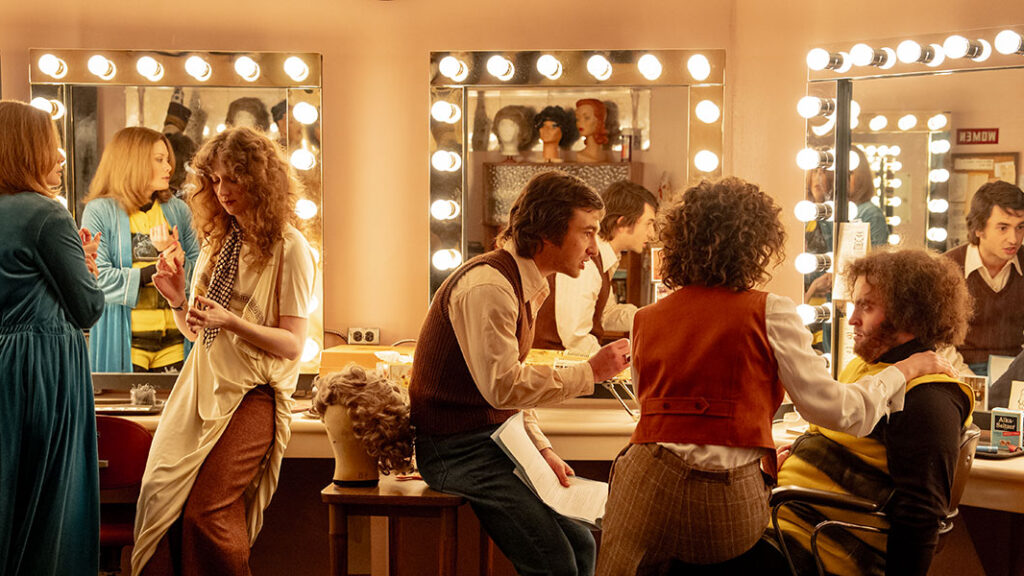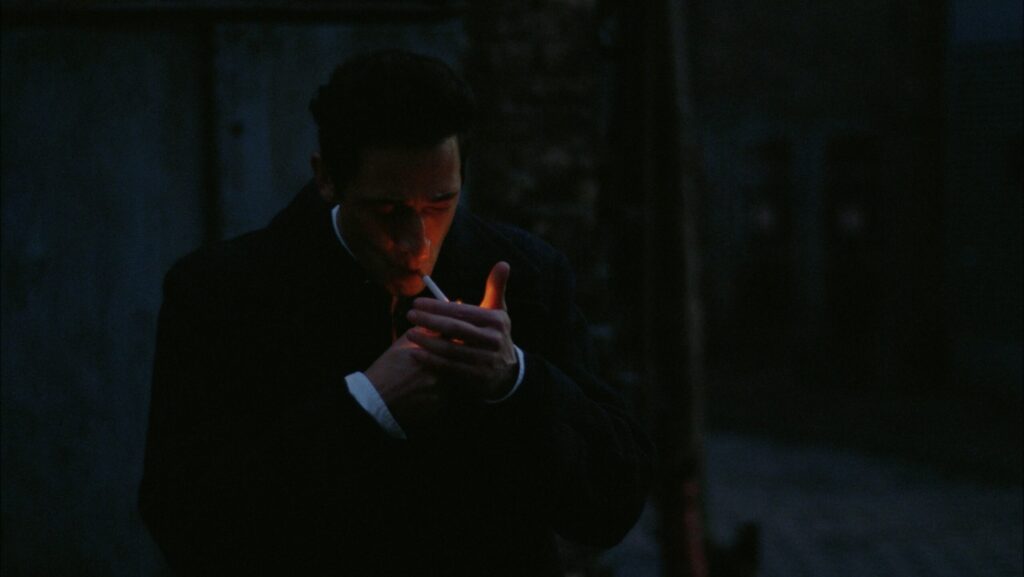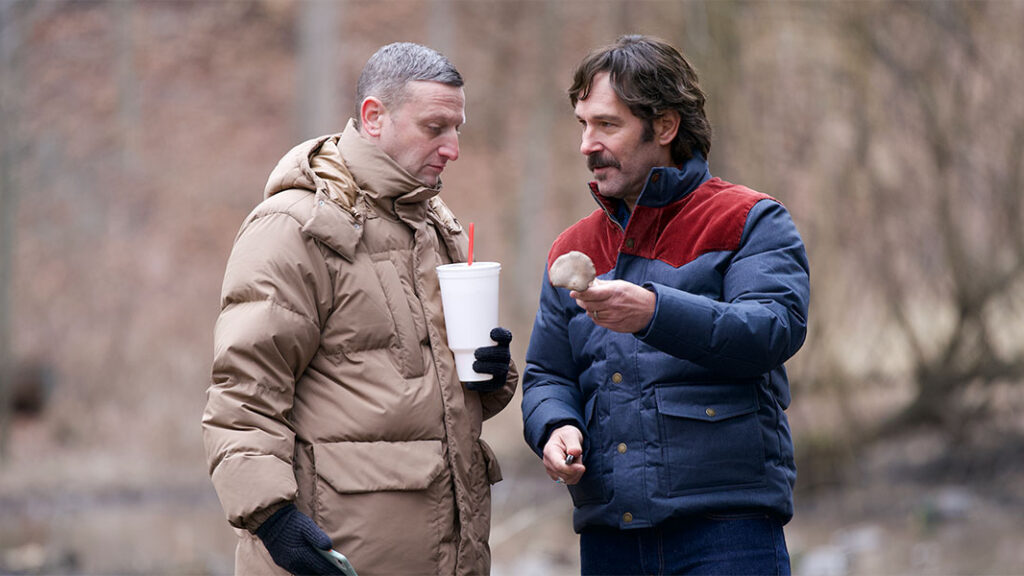The 49th Toronto International Film Festival is history. Our Canadian correspondent Jason Gorber takes a look back at a festival that has managed to harken back to its former glory days and awakens hopes for a great 50th TIFF next year.

The end of a festival always feels mildly anti-climactic, and the day later many of us are already on the hunt for our next fix. Without immediately attending another festival this year, I’ll have even more time between now and my next adventure to reflect on a very odd year for film reflected not only with the Toronto slate, but in general.
We always knew the strikes of last year would affect certain productions, and it’s hard not to see titles like Joshua Oppenheimer’s apocalyptic The End through any lens other than what we lived through during the COVID lockdown period. Yet as TIFF closes its first half-century of bringing films from around the world to my home town, it’s a difficult choice to be either bravely optimistic about a bright future, or cynically dismissive of a dying mode of movie going.
Surely the packed houses and bustling streets belie any negativity, and there was a palpable sense of returning if not fully to pre-COVID glories, than certainly closer than they’ve had in years. One of the more subtle changes seemed to be what we were hearing from some of the organizers, a far more Canadian level of humility about that rebuilding the prestige of the event is an ongoing affair, and that it will require more than simply declaring this the largest and more important public festival in the world rather than earning that designation.
Save for the likes of the “Joker” sequel and “September 5“, just about everything that one would want to play here did so, thanks in part to late additions such as “Saturday Night” that, if it had skipped the fest where the buildings bear the last name of the director’s family, would clearly have been a rebuke. The whole SNL scenario is a fascinating one, where a bunch of Torontonians and their colleagues went down to New York and changed late night television for generations. TIFF is one of those rare examples where there’s a dash of reciprocation, and it was a series of New Yorkers (including a jailed movie maven that’s, like Voldemort, no longer to be named) that by choosing to premiere here helped make this rough-and-tumble festival of festivals into the juggernaut it became.

On the second day of the festival I predicted that “The Life of Chuck” would take home the top prize, and I could not be happier that Mike Flanagan’s adaptation of the Stephen King novella won the People’s Choice award. All the ingredients were there – it was a true World Premiere for TIFF, Flanagan got his start here with Oculus in the Midnight Madness slate back in 2013, and it was a major acquisition title that would help provide even more attention when it sells for what’s likely to be an exorbitant amount. Plus, presumably, a lot of people likely voted for it, but here again is where the cynicism creeps in easily about how this prize is allocated historically.
Cannes faves also got plenty of attention, with Sean Baker’s Palme winner “Anora” taking home an honourable mention, while Jacques Audiard’s „Emilia Pérez” that took home an acting ensemble prize but received mixed reviews in France (this critic thought it sublime) found its true audience here with a rapturous reception. Other Cannes-ada connections included Mathew Rankin’s “Universal Language” taking home a cash prize, as did Sophie Derapse’s French-set “Shepherds”. The obvious win for “The Substance” as the Midnight Madness People’s Choice selection was formally sealed as well.
The documentary People’s Choice award was slightly more insular, with the Amazon Prime episodic doc “The Tragically Hip: No Dress Rehearsal” garnering praise. This rockdoc about a band that’s beloved by many here, unknown in the rest of the planet saw our own Prime Minister Justin Trudeau in attendance at the fest for the first time, as clear an indication as any about what Gord Downie and his bandmates mean to certain fans.

My colleagues from Fipresci were tasked with selecting from the discovery slate and they selected “Mother Mother” directed by Somali-Canadian rapper and writer/director K’naan Warsame. The NETPAC jury selected the documentary “The Last of the Sea Women” as this year’s award winner.
Many were advocating for other titles to receive acclaim. “Saturday Night” truly is exceptional, and if it would have had its World Premiere here, and wasn’t a last minute addition, it’s difficult to see it as anything other than a clear winner given its pedigree. On the flipside, the more ambitious and beloved by the art cinema crowd title “The Brutalist” was a dark horse hope for many. Shot on Vistavision, projected to the public on 70mm stock (and a measly 35mm for the hapless press), this 3 ½ hour epic also enthralled at Venice, taking home the Silver Lion there, but locked out of any awards attention here.
Let me briefly comment on the fact that despite the fetish for celluloid projection, it’s obvious that the IMAX screen at the local multiplex would have been a substantially superior place to project the DCP for Brady Corbet’s film, given that the very notion of verticality is central to the film’s thematic and visual core. Trading the opportunity to screen on a 6+ storey screen with IMAX Laster GT projection from the already digitally scanned source (“The Brutalist” was colour timed via a digital intermediate, and the CGI elements were of course added after scanning the 35mm negative) would have beenmonumentally superior to the comparatively paltry screens of TIFF’s Lightbox home.

Other premieres proved to follow the trend of decent yet not mind-bogglingly-excellent films that seem to for the most part characterize this calendar year. Ron Howard’s “Eden” was fine, as was Justin Kurzel’s “The Order”, making for a fun back-to-back Jude Lawe-athon mid-fest. Mike Leight’s “Hard Truths” was overlooked by his usual haunts Cannes, Venice and even Telluride, and the film is deserving of praise, even if other programmers missed out on its more subtle charms. Kudos, then, to TIFF for making a home for another film from this cinematic master. Meanwhile, Edward Burns’ “Millers in Marriage” shows that doing a favour for long-time attendees doesn’t always benefit, and the truly egregious film was by far the worst thing I caught all festival.
Docs continue to shine at TIFF, and by the end I was still singing the praises for the likes of “The Last Republican” and “Men at War”, as well as more quiet fare like Elizabeth Lo’s “Mistress Dispeller” are deserving of attention. Andrew DeYoung’s “Friendship”, starring Tim Robinson and Paul Rudd in a dark neighbourly dramedy, was just announced as a major acquisition by A24, justifying a lot of the buzz that the film built up during the fest. The film, again, is fine, but there’s definitely an audience for this quirky, sardonic tale.
In a year when it didn’t pour down with rain, or, god forbid, snow, it was a pretty sunny TIFF after years of challenges preventing it from truly shining. With next year a celebration of the 50th iteration, and a brand new, muti-million dollar market promising to bring in even more industry attention, there’s a genuine sense of hopefulness after these 11 days of films. The competition from Venice and Telluride in particular remains palpable, but even more than that, the changing of audience behaviour after getting used to at-home screenings is a real impediment to getting people off their couches. Still, I see glimmers of hope for the first time in a long time, and after a slew of good to excellent films, packed houses and pretty decent logistics, it’s fair to say that TIFF 24 can be considered overall a success.
Jason Gorber
